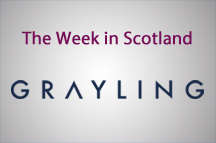 The local government election results have dominated the political scene in Scotland over the past week. Former mighty Labour strongholds, notably Glasgow, fell to the SNP, in what was overall a very bad night for the Scottish Labour Party. But while the results were relatively good for the SNP – becoming the largest groups in Glasgow and Edinburgh – it was far from plain sailing with a loss of outright control of Angus and the loss of a clutch of councillors. For the Lib Dems it was broadly a neutral result, though they are potential kingmakers in a number of key local authorities like Aberdeen and Aberdeenshire. And for the Scottish Greens there was some small progress in Edinburgh and a surprise result in Orkney.
The local government election results have dominated the political scene in Scotland over the past week. Former mighty Labour strongholds, notably Glasgow, fell to the SNP, in what was overall a very bad night for the Scottish Labour Party. But while the results were relatively good for the SNP – becoming the largest groups in Glasgow and Edinburgh – it was far from plain sailing with a loss of outright control of Angus and the loss of a clutch of councillors. For the Lib Dems it was broadly a neutral result, though they are potential kingmakers in a number of key local authorities like Aberdeen and Aberdeenshire. And for the Scottish Greens there was some small progress in Edinburgh and a surprise result in Orkney.
Conservative success
Across the UK, the Conservatives outperformed expectations (which were already pretty high) and Scotland was to be no exception. Fighting on a clear anti-independence referendum platform, the Scottish Conservatives dramatically increased their numbers. Some of the biggest surprises of the night saw the Conservatives forming groups from nowhere in the likes of The Highland Council and Midlothian and taking surprising seats in the most unlikely places of Shettleston in Glasgow’s east end and Ferguslie Park in Paisley.
The Scottish Conservatives now have a very clear platform to build from for the forthcoming General Election. Having gained first preference votes in many areas of Scotland, the Party will be looking to capitalise on this and target many SNP constituencies from rural Moray and Dumfriesshire to Stirling and parts of Edinburgh.
Deal making
 Meanwhile, shaking hands on a deal is looking increasingly hard for the newly elected councillors in Scotland. One week after the local election and still only a handful of Councils have announced a coalition. In the Scottish Borders it was announced that the Conservatives and Independents had come to an agreement, with the Conservatives taking the leadership role. Meanwhile, The Highland Council is to be governed by a coalition of Independents, Labour and Lib Dems. So why is doing a deal so hard?
Meanwhile, shaking hands on a deal is looking increasingly hard for the newly elected councillors in Scotland. One week after the local election and still only a handful of Councils have announced a coalition. In the Scottish Borders it was announced that the Conservatives and Independents had come to an agreement, with the Conservatives taking the leadership role. Meanwhile, The Highland Council is to be governed by a coalition of Independents, Labour and Lib Dems. So why is doing a deal so hard?
One of the critical issues is timing. One month out from a General Election, nobody wants to be seen to be cosying up to an opposition party. In the case of Labour in particular, this is just sheer self-preservation to ensure they don’t get further squeezed in the General Election. For the Tories, being seen to work with the SNP would be an anathema when they have campaigned on an anti-independence referendum ticket and the SNP equally does not want to be associated with what it sees as an austerity party.
There are allegations that in some cases potential deals are being vetted by national parties who are quashing them – the Scottish Labour Executive is allegedly preventing any deals that include Conservative groups. In other cases, it is a reflection of the number of new council group leaders, many of whom have not had to enter the fray of political bargaining before. Minority administration may become much more the norm than before – at least until the General Election is out of the way.














